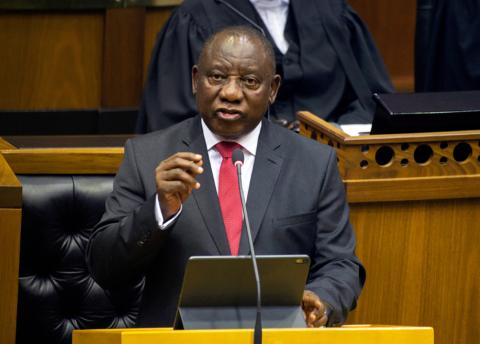Advertisement
South Africa pledges fiscal discipline in sweeping health reform
PRETORIA (Reuters) - A proposed switch to universal health coverage in South Africa will be managed in a fiscally responsible way, a senior presidential aide told Reuters, forecasting the landmark reform would cost the state $2.2 billion per year by 2025/26.
The National Health Insurance (NHI) programme, to be debated in parliament soon, is one of the country's biggest policy changes since white minority rule ended in 1994, and a cornerstone of government plans to fix a crisis-ridden system in which deep racial disparities persist.
Against a backdrop of a struggling economy and a corruption-riddled corporate sector, some opposition politicians and analysts have however questioned its affordability.
Responding to that concern, Olive Shisana - a special advisor to President Cyril Ramaphosa - said the programme would be phased in over a number of years.
"This government is not going to do something that will collapse the economy," she told Reuters in an interview.
"(The plan) is for gradual, incremental implementation in a fiscally responsible manner."
Expenditure for NHI in the current fiscal year, which began on April 1, is budgeted at around 2 billion rand.
Shisana said this would rise to around 33 billion rand ($2.2 billion) in the 2025/26 fiscal year.
NHI is designed to improve the quality of public health services and change the way private companies in the sector can operate.
Fewer than 20% of South Africa's 58 million people can afford private healthcare, while a majority of poor black people queue at understaffed state hospitals short of equipment.
To keep costs within budget, Shisana said the government would initially focus on a set of targeted interventions. Those could include hiring more doctors and improving hospital infrastructure in the public system.
At a later stage, the government is considering extending a medicine distribution programme for chronic diseases and rolling out a payment system for general practitioners based on the number of patients they serve and the health conditions in which they operate.
When the programme is fully launched, at a date yet to be determined, private medical insurance schemes won't be allowed to cover services reimbursed by a central NHI Fund. Private hospitals and clinics will accredit with the fund.
Alex van den Heever, a professor at the University of the Witwatersrand who specialises in health, suggested Shisana's assumptions on spending would not stretch to universal coverage.
"NHI envisages a shift to centralised medical cover, 30 billion rand won't buy you that," van den Heever said.
He estimated a full-scale rollout of NHI would involve raising tax revenue upwards of 3% of gross domestic product, or well over 100 billion rand.
The government introduced NHI legislation to parliament this month, but lawmakers have yet to debate the proposals.
(Reporting by Alexander Winning; editing by John Stonestreet)



















Add new comment